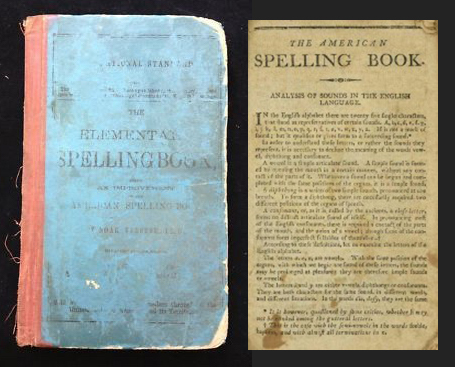Podcast: Play in new window | Download
Subscribe: Apple Podcasts | Spotify | RSS | More

Image credits: worthpoint.com and historyisfun.org
Very early in life I took up the idea that I wanted to learn to read and write. I was convinced that there would be something for me to do in the future, that I could not accomplish by remaining in ignorance. I had heard so much about freedom, and of the colored people running off and going to Canada, that my mind was busy with this subject even in my young days. I sought the aid of the white boys, who did all they could in teaching me. They did not know that it was dangerous for a slave to read and write.” — Rev. Elijiah P. Marrs, 1885
Throughout the South, it was illegal for white people to teach black people–enslaved and sometimes free–how to read. Some whites taught blacks anyway: at times motivated by kindness, other times by self-interest. But even without the assistance of white people, enslaved Americans learned to read and to write. Facing the threat of whippings and worse, they learned under cover of night, and in “pit schools” in the woods. They hid books in their dresses and under their hats so they would be ready for a lesson at any moment.
Today I am continuing a series on enslaved Americans’ pursuit of literacy. I have relied on several sources, but used the following most heavily–
Narrative of the Life of Frederick Douglass, an American Slave, Written by Himself
Additional Sources:
Born in Slavery: Slave Narratives from the Federal Writers’ Project, 1936 to 1938
University of North Carolina’s North American Slave Narratives Collection